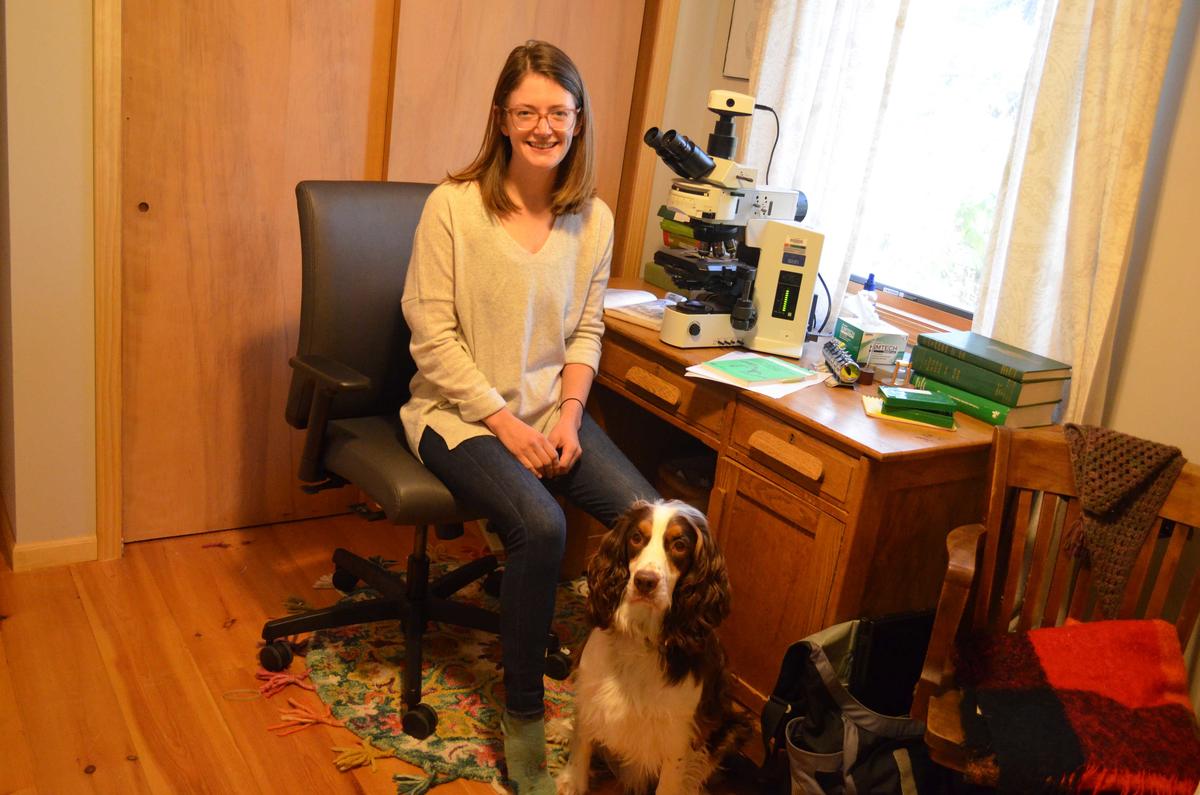Sometimes, it’s the little things that matter most. And that’s certainly true for Elizabeth Alexson and her work at NRRI to sort out some of the most complicated species of diatoms, a type of algae. These tiny organisms are microscopic, but incredibly abundant in the Great Lakes where they are an important food source for other species.
“Diatoms are also incredibly sensitive to environmental change, so changes in diatom populations help us understand changes in the Great Lakes,” said Alexson, an aquatic scientist specializing in algal ecology. “But despite this they have incredibly complicated taxonomy.”
Things got really exciting for Alexson when she and her team named a new species of diatom -- Pantocsekiella laurentiana. She’s looking forward to naming more in the genus Fragilaria.
“By naming new species and documenting the differences taxonomists use to identify them, we can hopefully aid in the correct identification of these diatoms in the future,” Alexson said.
Using diatoms and other phytoplankton as “early warning” indicators of change in water resources is important in the land of 10,000 lakes. Impending change is detected by the diatom community well before we notice changes in larger organisms like fish. This helps inform industry and agency partners who are responsible for making decisions that impact water resources.
COVID-19 cancelled this year’s research cruises on the R/V Lake Guardian to collect samples to monitor the lower food web of the Great Lakes. Typically, they’d motor around all the lakes twice a year as part of the Environmental Protection Agency’s long-term Biological Monitoring Program. By participating in the research cruise biannually, they can keep a close eye on algae in the Great Lakes.
Alexson’s work allows her to collaborate broadly across the University – even across the globe. A collaboration with Belgian scientists is helping to differentiate Great Lakes diatom species from those found only in Europe. She also works with scientists from UMD’s Large Lakes Observatory.
“Collaboration is so important,” she said. “It’s amazing to have expert geologists, statisticians, data scientists and more in the office just down the hall at NRRI.”
And sometimes the unique nature of the equipment needed in her lab can be hard to find, so she appreciates Julie Ann Heinz, purchasing and administrative assistant.
“Her willingness to track down sometimes esoteric supplies keeps us working,” Alexson added.
Lessons from a pandemic
Through the COVID situation, Alexson has learned how important it is to remain patient and flexible.
“COVID-19 has affected everything we do – research cruises, conferences, and even regular lab work, but by remaining adaptable we've been able to continue to our research,” she said.
